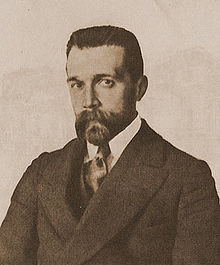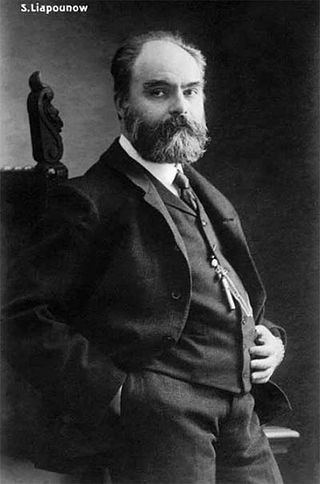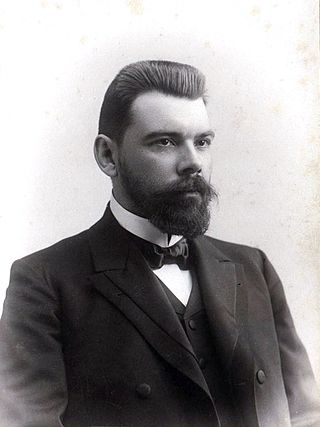
This is a list of compositions by Nikolai Myaskovsky by category.

This is a list of compositions by Nikolai Myaskovsky by category.
Before his official Piano Sonata No. 1, Myaskovsky composed four or five unpublished piano sonatas. One of these was orchestrated as the Overture for small orchestra, and two more were revised in 1944 to become the official Sonatas Nos. 5 and 6. From about 1907 to 1919, Myaskovsky wrote dozens of short piano pieces as studies or exploratory drafts: he provisionally collected these in eight (unpublished) albums and referred to them collectively as Flofion or by the diminutive Flofionchiki, an apparently made-up word meaning something like 'Frolics' or 'Whimsies'. [2] Several of these were re-worked into the published piano collections Opp. 25, 29, 31, 78 and the orchestral suite Op. 65, while others provided movements – e.g. the slow movement of Piano Sonata No. 4 [3] – or thematic material for later chamber and orchestral works.

Robert Fuchs was an Austrian composer and music teacher. As Professor of music theory at the Vienna Conservatory, Fuchs taught many notable composers, while he was himself a highly regarded composer in his lifetime.

Sergei Mikhailovich Lyapunov was a Russian composer, pianist and conductor.

Alexander Fyodorovich Goedicke was a Soviet and Russian composer and pianist.
F minor is a minor scale based on F, consisting of the pitches F, G, A♭, B♭, C, D♭, and E♭. Its key signature consists of four flats. Its relative major is A-flat major and its parallel major is F major. Its enharmonic equivalent, E-sharp minor, has six sharps and the double sharp F, which makes it impractical to use.
Gustav Strube was a German-born conductor and composer. He was the founding conductor of the Baltimore Symphony Orchestra in 1916, and taught at the Peabody Conservatory. He wrote two operas, Ramona, which premiered in 1916, and The Captive, which premiered at the Lyric Theatre in Baltimore in February 1938. He was also a member of Baltimore's famous Saturday Night Club with H. L. Mencken.

Sir John Blackwood McEwen was a Scottish classical composer and educator. He was professor of harmony and composition at the Royal Academy of Music, London, from 1898 to 1924, and principal from 1924 to 1936. He was a prolific composer, but made few efforts to bring his music to the notice of the general public.

Jaroslav Řídký was a Czech composer, conductor, harpist, and music teacher.
Saburō Moroi was a Japanese composer.